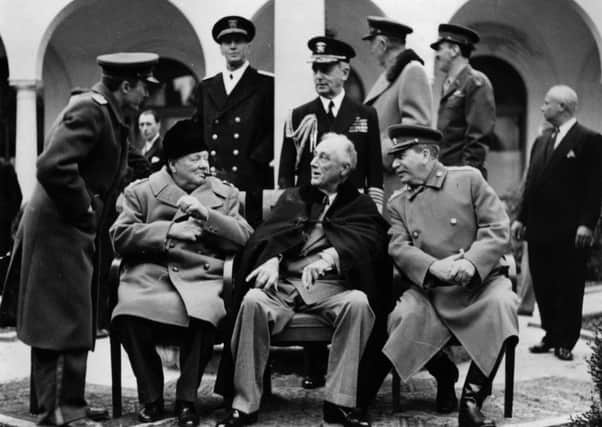THROUGH THE ARCHIVES: ‘Big Three’ talks prospects, Sir Winston has nothing further to add


Answering questions suggestions for a “Big Three” conference to discuss international difficulties following the success the Geneva Conference at Westminster the previous day, the Prime Minister Sir Winston Churchill, said he had nothing to add to his previous statement on the subject of top level conferences.
“The Government intends to take all possible steps to decrease tension, whether through established bodies or by special measures,” the British Prime Minister said.
Advertisement
Hide AdAdvertisement
Hide AdMr Shinwell (Labour, Easington) complained that the Prime Minister often said he “had nothing to add and asked whether that was not repetition.”
There was loud laughter when the Speaker commented: “The only order against repetition when it is when it is tedious.”
The Reverend R W Sorensen (Labour, Leyton) said that “the omens at this time were rather encouraging” and he asked if the Prime Minister could give “rather more definite assurance as to what he might do in the near future”.
Sir Winston did not answer, and Mr C Osborne (Conservative, Louth) asked: “What has he done to the official Opposition so that it regards him as the world’s greatest apostle of peace, when three years ago they said he was warmonger?”
Advertisement
Hide AdAdvertisement
Hide Ad